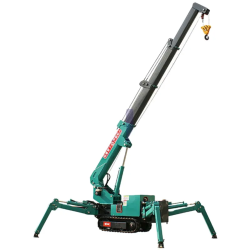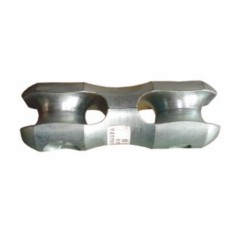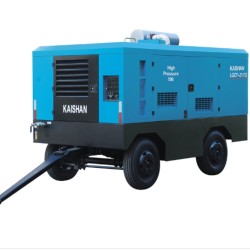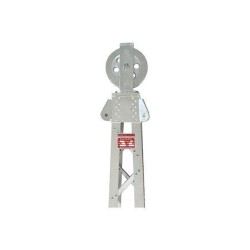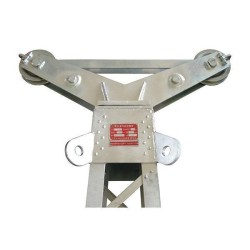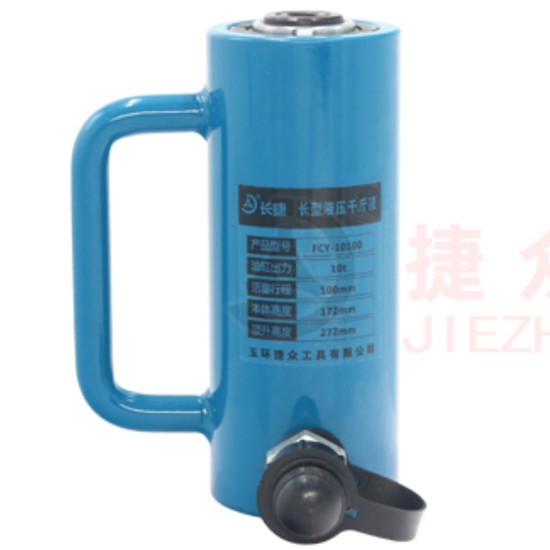
- Stock: In Stock
- Model: FCY
- Weight: 4.40kg
Available Options
Description:
Hydraulic jack is a mechanical device that works based on hydraulic principles, used to lift and support heavy objects. It transfers liquid (usually hydraulic oil) to the hydraulic cylinder through hydraulic pressure, causing the piston to generate thrust or tension, thereby achieving the lifting and positioning of heavy objects.
Product features:
1. Strong load-bearing capacity: Hydraulic jacks have a high load-bearing capacity and can handle various heavy work scenarios. Its carrying capacity is usually expressed in tonnage, such as 2 tons, 5 tons, 10 tons, etc.
2. Compact and sturdy structure: Hydraulic jacks are usually made of sturdy metal materials, which have excellent durability and reliability. Its compact structure makes it easy to carry and use.
3. Flexibility and accuracy: Hydraulic jacks can achieve precise force control through control handles or operating rods, giving them flexibility and accuracy when lifting, lowering, or positioning heavy objects.
4. Easy to operate: Hydraulic jacks are relatively simple to operate, requiring only the use of a handle or lever to apply force to lift and lower heavy objects. During the operation process, only basic knowledge and skills need to be mastered to ensure safe use.
Automotive maintenance: Hydraulic jacks play an important role in automotive maintenance. They can be used to lift cars for tire replacement, chassis maintenance, engine maintenance, and other operations.
Usage scenario:
1. Industrial production: In industrial production, hydraulic jacks are used to lift and position heavy mechanical equipment, components, and workpieces. They can be used for installing and replacing large molds, adjusting the position of machine equipment, and so on.
2. Construction: Hydraulic jacks are widely used in the construction process to lift and position heavy objects such as floors, beams and columns, and steel structures. They are also used to support and stabilize the pile foundations and supporting structures of buildings.
3. Aerospace: In the field of aerospace, hydraulic jacks are used to install and repair various components and systems of aircraft. They can provide the necessary strength and stability to ensure safe and efficient maintenance work.
4. Logistics and Freight: Hydraulic jacks are also used in the logistics and freight industry. They are used to lift heavy goods, containers, mechanical equipment, etc., and play a supporting and fixing role in loading, unloading, warehousing, and transportation processes.
|
Model |
Capacity |
Stroke |
Body height |
Cylinder outer diameter |
Cylinder inter diameter |
Plunger diameter |
Weight |
Recommended pump |
|
FCY-10100 |
10 T |
100 mm |
172 mm |
68 mm |
45 mm |
36 mm |
4.4 kg |
CP-180 |
|
FCY-10150 |
10 T |
150 mm |
222 mm |
68 mm |
45 mm |
36 mm |
5.7 kg |
CP-180 |
|
FCY-20100 |
20 T |
100 mm |
176 mm |
83 mm |
60 mm |
45 mm |
5.3 kg |
CP-700 |
|
FCY-20150 |
20 T |
150 mm |
226 mm |
83 mm |
60 mm |
45 mm |
6.6 kg |
CP-700 |
|
FCY-30100 |
30 T |
100 mm |
187 mm |
103 mm |
75 mm |
65 mm |
10.7 kg |
CP-700 |
|
FCY-30150 |
30 T |
150 mm |
237 mm |
103 mm |
75 mm |
65 mm |
13.5 kg |
CP-700 |
|
FCY-50100 |
50 T |
100 mm |
197 mm |
123 mm |
95 mm |
70 mm |
14.9 kg |
CP-700 |
|
FCY-50150 |
50 T |
150 mm |
247 mm |
123 mm |
95 mm |
70 mm |
18 kg |
CP-700-2 |
|
FCY-100100 |
100 T |
100 mm |
232 mm |
178 mm |
140 mm |
100 mm |
30.6 kg |
CP-700-2 |
|
FCY-100150 |
100 T |
150 mm |
282 mm |
178 mm |
140 mm |
100 mm |
35.5 kg |
CP-700-2 |
|
FCY-150100 |
150 T |
100 mm |
232 mm |
205 mm |
165 mm |
115 mm |
53 kg |
CP-700-2 |
|
FCY-150150 |
150 T |
150 mm |
282 mm |
205 mm |
165 mm |
115 mm |
63 kg |
CP-700-2 |
|
FCY-200100 |
200 T |
100 mm |
252 mm |
228 mm |
190 mm |
135 mm |
11 kg |
Electric pump |
|
FCY-200150 |
200 T |
150 mm |
302 mm |
228 mm |
190 mm |
135 mm |
83 kg |
Electric pump |
Quality Assurance Period (QAP) Explanation
1. The Quality Assurance Period (QAP) is an important aspect of our commitment to ensuring the quality and reliability of our products. We understand that customers rely on our goods to function properly and meet their expectations. To demonstrate our confidence in our offerings, we provide a warranty period during which we take responsibility for any quality issues that may arise.
2. The length of the warranty period varies depending on the type of product. Generally, for consumable components subject to wear and tear, such as abrasion parts, the warranty period is three months. For smaller components, the warranty period is typically extended to six months. As for major equipment and machinery, we offer a one-year warranty period.
3. We also recognize that each customer's requirements may differ, and we are open to negotiation regarding the warranty period. If the buyer requests a specific warranty duration that differs from our standard policy, we are willing to discuss and accommodate their needs accordingly.
4. During the warranty period, we take full responsibility for any quality-related issues that arise. If a product is found to be defective or malfunctions due to manufacturing or material faults, we are committed to providing a resolution. This includes either replacing the faulty component or conducting necessary repairs to restore the product to its intended functionality. Our aim is to minimize any inconvenience caused to our customers and ensure their satisfaction.
5. It is important to note that the warranty does not cover damages resulting from improper use, mishandling, or normal wear and tear. Additionally, if any modifications or repairs are carried out by unauthorized personnel during the warranty period, the warranty may become void.
6. At our company, customer satisfaction is our top priority. We strive to provide high-quality products that meet and exceed expectations. The Quality Assurance Period serves as a testament to our commitment to delivering reliable solutions and ensuring that our customers have peace of mind when choosing our products.
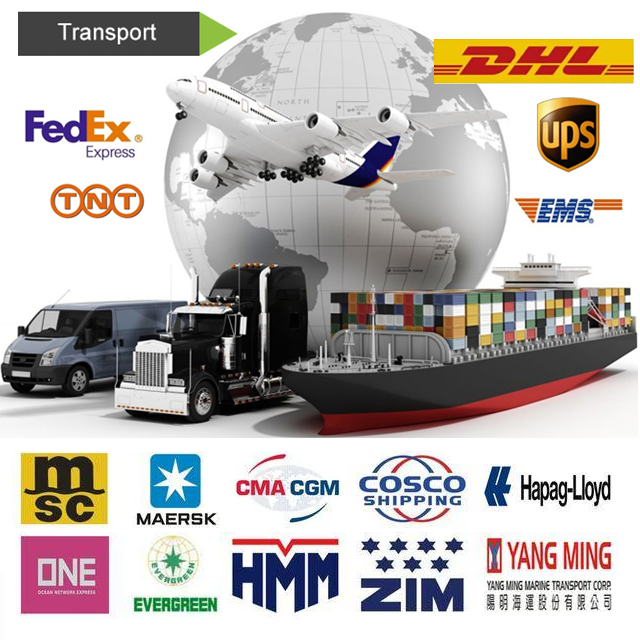
Transportation:
1. We offer various trade methods, including EXW, FOB, CIF, DDU, DDP, etc., allowing customers to choose the most suitable option based on their requirements.
2. We consider the proximity to the factory where the goods are located when selecting the appropriate port of departure.
Customers can provide the destination port where the consignee is located or choose a designated port for delivery.
3. Our transportation methods encompass a wide range of options, including waterway transportation, air transportation, and courier services such as DHL, FedEx, EMS, UPS, TNT, etc.
For waterway transportation, we work with reputable shipping companies such as APL, CMA, CNC, COSCO, EMC, EVERGREEN, HMM, KMTC, MCC, MSC, MSK, ONE, SITC, YML, etc.
Air transportation is available through airlines such as (Air China): CA; (China Southern Airlines): CZ; (China Eastern Airlines): MU; (Garuda Indonesia): GA; (Cathay Pacific Airways): CX; (Cathay Dragon): KA; (Korean Air): (Japan Airlines): JL; (Singapore Airlines): SQ; (Thai Airways International): TG, and more.
4. The transportation time will vary depending on the destination and the chosen transportation method. We will communicate and confirm the estimated time of arrival with the customer prior to shipping.
5. Shipping costs are influenced by factors such as transportation method, weight, size, and destination. We provide shipping cost estimation services to assist customers in budgeting.
6. Once the goods are shipped, we offer order tracking services to provide customers with detailed information about the whereabouts of their shipment. Additionally, based on the selected trade method, we can arrange cargo insurance to provide compensation in the event of loss or damage during transportation.
7. The specific transportation arrangements mentioned above will be coordinated by dedicated personnel, taking into account the actual situation and policies. We strive to tailor the optimal and most cost-effective shipping plan based on the information provided by the customer.
Please note that we are committed to ensuring the smooth transportation of goods and will work closely with customers to address any specific requirements or concerns they may have regarding transportation.









